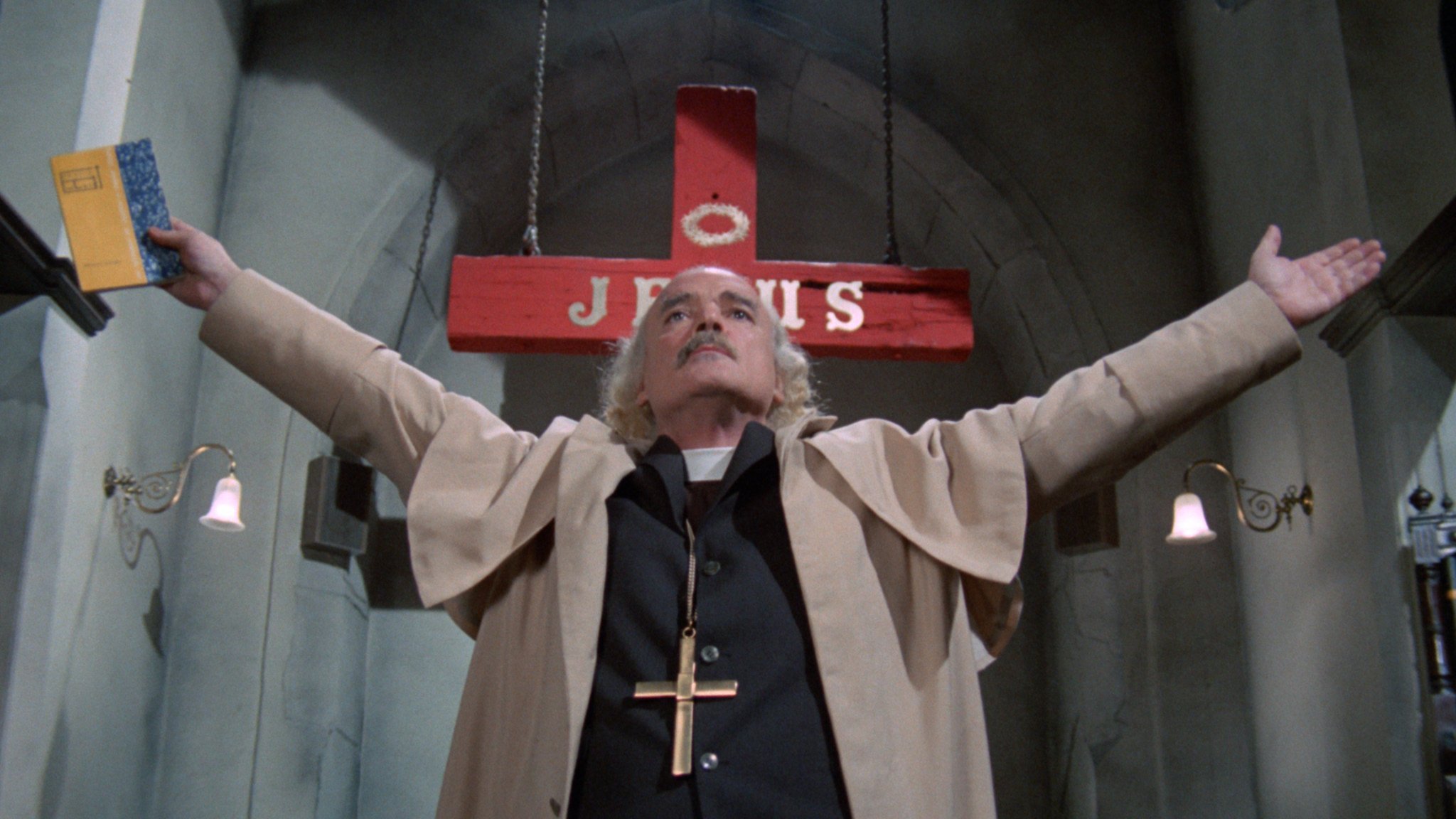
The Fiend (1972)
“THIRD NUDE FOUND!”
The Fiend, with its fantastic gospel soundtrack, cool late 60s / early 70s setting and fast pace, has to rank as one of the grooviest films on this site. The songs are absolutely brilliant.
And much like its stablemate Corruption, The Fiend is also unashamedly warped, which is of course what we're all looking for - mixing church worship with violent murder, giving its lead character an Oedipus complex, intimating that organised religion is basically corrupt and eventually having a vicar crucified in his own church. Mary Whitehouse must have been on her holidays the week this came out, otherwise I'm sure we all would have heard a lot more about it.
It starts as it means to go on - vicar Patrick Magee (a man who deserves far more credit than he gets for his amazing Brit Horror contributions) launches into a sermon, and as a Shirley Bassey lookalike leads the congregation in a chorus of Wash Me In His Blood, shots of a baptism are mingled with images of a big-haired miniskirted young lady being chased down a variety of shady alleyways. As the baptism reaches its inevitable climax, we see the girl grabbed by gloved hands, stripped, strangled and drowned.
But the audience doesn't get time to catch their breath, because once the credits have rolled we're thrown straight into a Sweeney-style punch-up between a security guard and some screwdriver-wielding thugs. The security guard wins, and heads off home to mother, whom he immediately tells: "I met someone last night…"
Given that the security guard is professional sleazeball Tony Beckley (probably best known as Camp Freddie from The Italian Job), it doesn't take a genius to work out that the "someone" is the "Third Nude Found" today's Sun headlines are screaming about. And we get a bigger clue when he disappears into his cellar and starts playing an audio tape he's made of the dying girl, Peeping Tom - style. His name is Kenneth, and when he's not killing people or guarding stuff, he's got a part-time job at the local swimming baths, where he berates topless sunbathers.
Kenneth's got some major problems (the main one being that he can't stop killing young women), and they all seem to stem from his overbearing, bedridden mother. As the killings continue (interspersed with more groovy music and mucho topless jiggling about), mum's health begins to ebb away, and not even her cast iron faith seems to be able to help her (Magee's holy rolling Brethren meet in a part of her house she's had converted into a church).
Mum doesn't like her new nurse much, and with good reason. Nurse's sister is Suzanna Leigh, who just happens to be an investigative reporter. Wanting to do a piece on religious fanatics, she stumbles across more than she bargained for.
The film looks brilliant - the seediness of Kenneth's home and the chapel (all the congregation wear browns and greys, matching the walls and furniture) contrast with the grooviness of the bright young sisters' contemporary lifestyle. And there is some great dialogue, from the mundane (Leigh compaining "Hey - less of the fat arse!") to the madness of Magee's lengthy rants. The murders are also suitably nasty, and the discoveries of the bodies are particularly entertaining (at one point a body plops out of a cement mixer - another girl is found skewered on a meathook). And Kenneth is shown to be capable of remorse - he's genuinely upset that he "had" to kill the last girl. What the film is trying to say is anyone's guess, but if you switch your brain off it's awesome stuff - and certainly not the "tawdry psychodrama" I once saw it described as.
